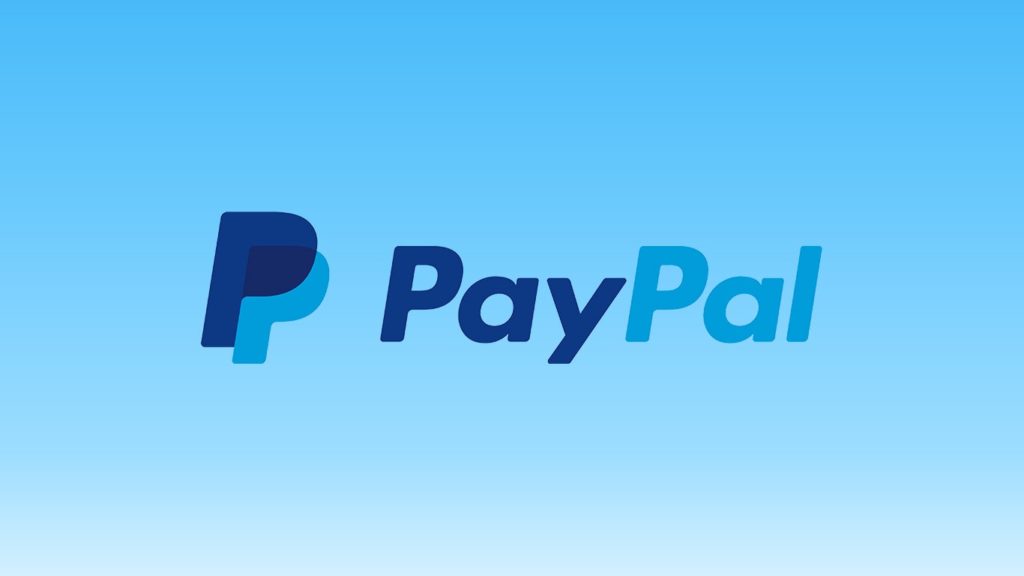
PayPal was once one of the most revolutionary technologies in the world. It’s the first international payment gateway that brought businesses and customers closer and eased the way businesses were conducted. This platform received more attention when eBay spun it off in 2015, as both sellers and purchasers were concerned about fraudulent behavior. PayPal has unquestionably been the go-to online payment option for many people worldwide. However, as time goes by and technology advances, users find that PayPal’s limitations led to the sprouting of its competitors and possibly better alternatives.
Why do you need a PayPal alternative?
You might need a PayPal alternative for various reasons. PayPal is a mobile banking platform that is used to facilitate transactions between two parties, whether individuals or businesses. It is one of the largest mobile banking platforms in the world. However, there are still reasons one might actually need an alternative to it. Yes, it does its job well, and yes, it is oftentimes enough, but the platform is not without its issues.
We will point out these issues here so that our readers might understand why a PayPal alternative might be the best thing for them. This is why you need a PayPal alternative:
- The most common complaint we have heard regarding the platform is the high transaction fee it charges. There are several alternatives that are much cheaper.
- Also, you would have to get a PayPal account to facilitate any transfer.
- It is also observed that sometimes it can be a bit tricky to withdraw the amount from your PayPal account.
- Another caveat that surrounds the platform is its unwillingness to protect a seller’s digital products.
- There have been cases where it has frozen user accounts for up to six months without any prior notice.
- And finally, in this day and age, the platform does the bare minimum, as it is severely lacking in additional features. So if you want customizability and enhanced functionality, then you might have to look elsewhere.
List of 12 Best PayPal Alternatives
PayPal can be quite limiting for users in some cases. For example, it’s impossible to send or receive money from certain countries. Also, it takes quite a hefty fee when you transfer money.
There’s also the added risk that your account can be hacked or someone will steal your information, making it dangerous for some people to use. You may also not like it while receiving the money and waiting for it to show up in your bank account; this transfer takes 5-7 working days to process.
These are the top 12 PayPal alternatives in 2023 –
1. Amazon Pay
Amazon Pay is powered by Amazon, which means that you can also use it to make purchases on Amazon. It’s very flexible and easy to use for buyers and sellers since there are no fees involved with using this platform. It works in 19 countries worldwide.
However, they do require 10 euro transactions, so keep this in mind when using this platform. Your account information needs to be connected with an Amazon store or credit card if you want to open a merchant account. This might not be suitable for everyone who just wants basic features from a PayPal alternative without being forced into anything else they don’t need yet.
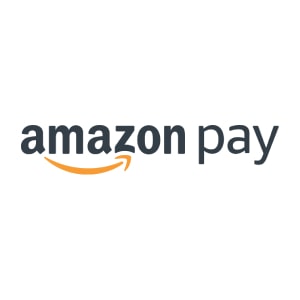
Pros
- Works on Amazon and other sites.
- No fees for buyers and sellers.
- Availability in 19 countries.
- Reliable due to Amazon’s backing.
Cons
- Requires a 10 euro transaction.
- Account connection to an Amazon store.
- May not suit those seeking basic features.
2. Skrill
Skrill is another online payment platform many people might not have heard of before. It’s very popular in Europe and has been around for 10 years now, but it hasn’t reached the same level of presence as PayPal yet.
One good aspect of Skrill is that you can use your existing account or create a new one without providing personal information upfront, which makes this entirely anonymous and secure if needed. They also take fees from only sellers when transactions are made rather than buyers like most other platforms do, so there aren’t any additional costs involved here either.
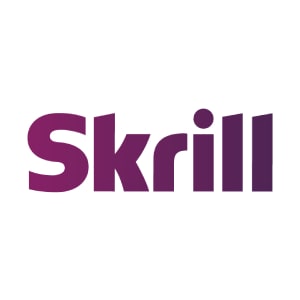
Pros
- Popular in Europe.
- No upfront personal information.
- Fees from sellers, not buyers.
- Anonymity and security.
- Availability in various countries.
Cons
- Lacks the recognition of PayPal.
- Potential feature gaps.
- Presence limited in certain areas.
- Restricted to digital transactions.
- Confined to online payments.
3. Payoneer
Payoneer is a payment platform that is very popular among freelancers and online entrepreneurs. This is because it offers a lot of flexibility when it comes to receiving payments from clients worldwide. There are no setup or monthly fees involved with using Payoneer, but there are some charges for different transactions.
For example, withdrawing money from your account costs USD 0.50 but depositing cash is free. Payoneer enables you to receive local bank transfers from firms and marketplaces in the United States, United Kingdom, European Union, Japan, Canada, Australia, and Mexico directly to your Payoneer account.
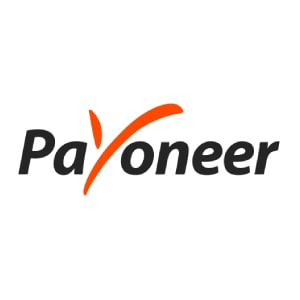
Pros
- Popular among freelancers.
- No setup or monthly fees.
- Flexible for receiving global payments.
- Supports various bank transfers.
- Allows local bank transfers.
Cons
- Transaction charges for withdrawals.
- Limited to specific countries.
- May not be ideal for low-volume users.
- Limited to specific services.
- Currency conversion fees.
4. Stripe
Stripe is a platform that is extremely popular among online businesses and is supported in 46+ countries. The reason why this PayPal alternative is so attractive to merchants is the fact that there are no setup fees, monthly fees, or transaction charges whatsoever. The only downside here, though, might be Stripe’s limitations on receiving funds which can take up to 10 days in some cases.
This isn’t necessarily bad if you’re selling products, but it may not work as well when accepting donations, for example. One other thing worth noting about Stripe is that they offer all kinds of different services, including recurring billing, subscriptions, marketplaces, etc. This makes them one of the best platforms overall despite their minor setbacks.

Pros
- Widely used by online businesses.
- No setup, monthly, or transaction fees.
- Supports various business services.
- Available in many countries.
- Payment processing for merchants.
Cons
- Funds may take time to receive.
- Limited to specific services.
- Limited to certain types of transactions.
- Some restrictions on fund access.
- May not suit all business models.
5. Google Pay
Owing to the popularity of Android, Google Pay has become a reliable and efficient e-commerce platform that can handle payments to and from multiple sources. Users can integrate the Google Pay module with their websites, apps, offline stores, and much more, due to the simplicity and ease-of-use that Google offers. The platform supports monetary transactions such as direct bank transfers, net banking, debit and credit cards, UPI, and even gift cards with minimal fees.
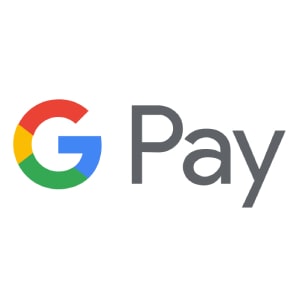
Pros
- Seamlessly integrates with Android.
- Sustains multiple payment sources.
- User-friendly interface.
- Minimal associated fees.
- Applicability to various transaction types.
Cons
- Limited to Android user base.
- Availability may vary by region.
- Encounters competition from other platforms.
- Imposes transaction fees.
- Confined to digital payments.
6. Razorpay
Razorpay is yet another upcoming e-commerce platform that provides payment solutions. The service already has coverage of over 200 countries and offers a suite of features. The most attractive point regarding this platform is its lower international exchange rate which levies only a 3% fee on international transactions.
Furthermore, the platform supports multiple bank transfer systems, including some famous international ones such as ACH, SEPA, SWIFT, and CHAPS. And lastly, there is no more need for manual FIRC filings.
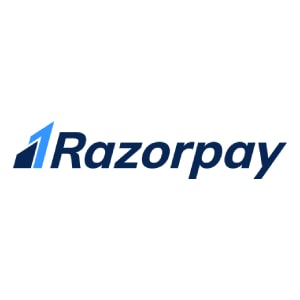
Pros
- Expanding e-commerce platform.
- Low international exchange rate.
- Supports various bank transfers.
- No need for manual FIRC filings.
- Multiple payment features.
Cons
- Geographical reach limited.
- May entail specific prerequisites.
- Limited to certain currencies.
- Fails to establish a strong presence in some regions.
- Transaction-related charges.
7. WePay
WePay is a payment company based in the United States. The company offers online payment processing services for merchants and consumers. It also provides small businesses invoicing, billing, and other financial services.
WePay is a great PayPal alternative for businesses in the United States. The company offers online payment processing services, merchant accounts, and invoicing and billing services. WePay also has a flat fee of $0.50 per transaction plus 0.80% of the total transaction amount. This makes it a more affordable option than PayPal for small businesses.
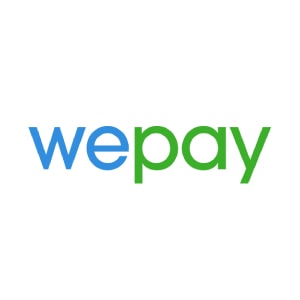
Pros
- Payment processing services.
- Invoicing and billing for businesses.
- Flat fee structure.
- Suitable for small businesses.
- Competitively priced.
Cons
- Limited to the United States.
- May not offer all services.
- Limited to specific transaction types.
- May not suit all business sizes.
- Potential for fees based on usage.
8. Intuit Go Payment
Intuit GoPayment or QuickBooks Payment is a credit card processing service for small businesses. The company offers custom payment plans, free equipment, and low rates. Intuit also provides an Android app that allows users to take payments with their smartphone or tablet and view reports on customer behavior.
GoPayment from Intuit is another great PayPal alternative for US-based businesses. It has affordable fees of $0 per month plus 10 cents per transaction and no charge beyond the first $50 in sales. It’s all about mobile apps, too; you get one included at no extra cost.

Pros
- Credit card processing service for small enterprises.
- Tailored payment plans available.
- Equipment provided free of charge.
- Commendably low transaction rates.
- Mobile payment options accessible.
Cons
- Limited to US-based businesses.
- May not suit all business types.
- Transaction fees beyond the first $50.
- Limited international reach.
- Limited to specific services.
9. Square
Square is a mobile app that allows merchants to accept credit card payments. Square has an easy-to-use interface and offers low transaction rates. The company provides a free reader but charges 10 cents per swipe after the first $50 in sales or deposits made using the service each month.
Square from Jack Dorsey’s Twitter empire certainly isn’t as famous as PayPal, but it might be more affordable for businesses with smaller payment volumes. It only costs 10 cents per swiped sale-after your first $50 of transactions every month.
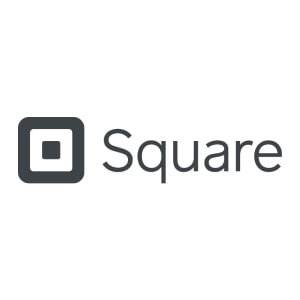
Pros
- Mobile application for credit card payments.
- Intuitive user interface.
- Offers competitive transaction rates.
- Equips users with a complimentary card reader.
- Well-suited for businesses with lower transaction volumes.
Cons
- Lacks the recognition enjoyed by PayPal.
- May impose limitations on free transactions.
- Presence confined to specific international markets.
- Centered on mobile payment processing.
- Exclusive compatibility with specific devices.
10. Dwolla
Dwolla is a payment network that allows users to send and receive payments. It offers a free Dwolla account, which can send and receive payments. Dwolla also has a merchant services program that allows companies to accept credit card payments.
Dwolla is a popular payments provider that supports many developer tools and APIs. It’s developed to be developer-friendly and straightforward to integrate with your application. The white-label API entails that your consumers interact with the interface they trust, which is yours.
Customer identification is achieved without third-party site involvement, and bank accounts are easy to add. With one API request, Dwolla can send up to 5,000 payments. It also has a hands-on client success team and a 99.9% availability rate.

Pros
- Payment network with API integration.
- Developer-friendly.
- Supports many developer tools.
- Straightforward integration.
- Hands-on client success team.
Cons
- Limited international reach.
- May necessitate technical expertise.
- Presence limited in certain regions.
- Primarily tailored to developer requirements.
- Subject to constraints in certain currency transactions.
11. Apple Pay
Apple Pay is a mobile payment system developed by Apple Inc. It allows users to make payments using their iPhone, iPad, or Apple Watch. Apple announced Apple Pay would be coming to the web, opening up its platform beyond apps or Apple devices. It uses TouchID on iOS 10+ and MacOS 10+. Apple Pay is another excellent PayPal alternative for businesses with an iPhone user base.
The service allows users to make payments using their iPhones. This works by simply holding your phone near a contactless payment terminal at any store that accepts NFC transactions. Apple Watch owners can also use it if they carry their phone, as long as both are paired to iPad Air or later models.
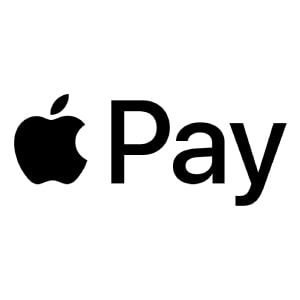
Pros
- Mobile payment system for Apple devices.
- Convenience for iPhone users.
- Secure transactions.
- Contactless payments.
- Expansion beyond apps.
Cons
- Exclusive to Apple device users.
- Limited applicability to particular transaction types.
- May not cater to non-iPhone users.
- Availability restricted to regions supporting Apple Pay.
- Imposes transaction-related costs.
12. Braintree
Braintree is a merchant services provider that offers online payment solutions for businesses through subscription-based services. It allows users to process payments using an API, which can be used on the web or mobile devices. Braintree is an online payment platform that supports a variety of payments.
The software, founded in 2007 and focuses on e-commerce and subscription clients, is owned by PayPal. It’s ideal for companies that process a lot of international transactions. It is accessible to merchants in the United States, Europe, Australia, New Zealand, Canada, Hong Kong, Singapore, and Malaysia.

Pros
- Merchant services provider.
- Online payment solutions.
- API integration.
- Support for a variety of payments.
- Available in multiple countries.
Cons
- Owned by PayPal.
- Limited to specific regions.
- Limited to certain types of businesses.
- May have specific requirements.
- Transaction fees for some services.
Our recommendations for PayPal alternatives
Keeping the best interests of our readers in mind, we have to recommend a few mobile banking services that might actually be a suitable alternative to PayPal. If you want a widely accepted platform with enough features, then we suggest using Amazon Pay.
But if you are a freelancer and want flexibility in your payment solutions, then Payoneer might be a better pick. Then there is always Google Pay, which, as we all know, has tons of features.
Finally, we would like to suggest Apple Pay, an iOS option that integrates smoothly with Apple’s current architecture.